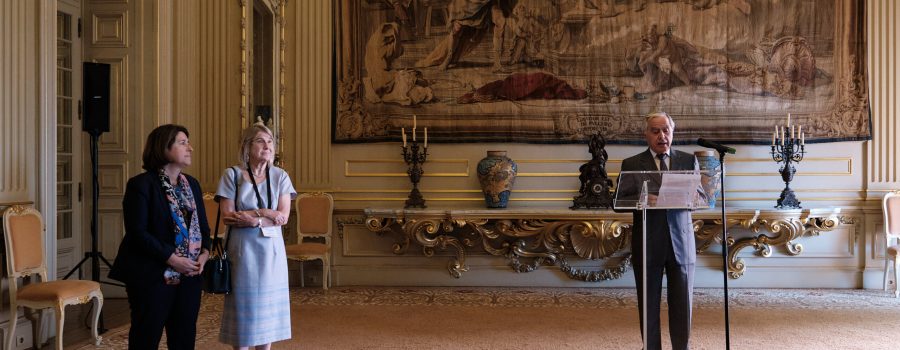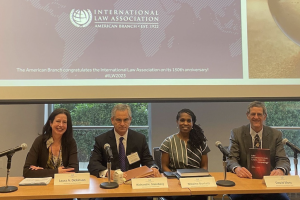Report on the ILA Biennial Conference: June 19-24, 2022
 With contributions by Summer 2022 Student Ambassador Natalie Swatowski
With contributions by Summer 2022 Student Ambassador Natalie Swatowski
The objectives of the International Law Association (ILA) are the study, clarification, and development of international law, both public and private, and the furtherance of international understanding and respect for international law. One of the ILA’s main activities in furtherance of this goal is an international law conference that takes place in a different jurisdiction every two years. The inaugural conference was held in Brussels in 1873; the most recent took place in Lisbon, Portugal in June 2022.
The 80th Biennial ILA Conference, organized by the Portuguese Branch, brought more than 200 attendees to Lisbon from around the world. Dozens of American Branch members took part, including many of the ABILA members that currently represent the American Branch on ILA committees.
The Conference provides opportunities to share both experiences and understandings of current issues and challenges in international law. ILA committees report on their work, and reports and resolutions in particular areas of international law are considered and adopted. It is also an excellent opportunity to connect with colleagues from across the world, not only catching up on local and regional developments but also establishing new links to build upon once you have returned home after the event. The ILA has established a Scholarship Fund to help graduate and postgraduate students and early career professionals attend the biennial conferences.
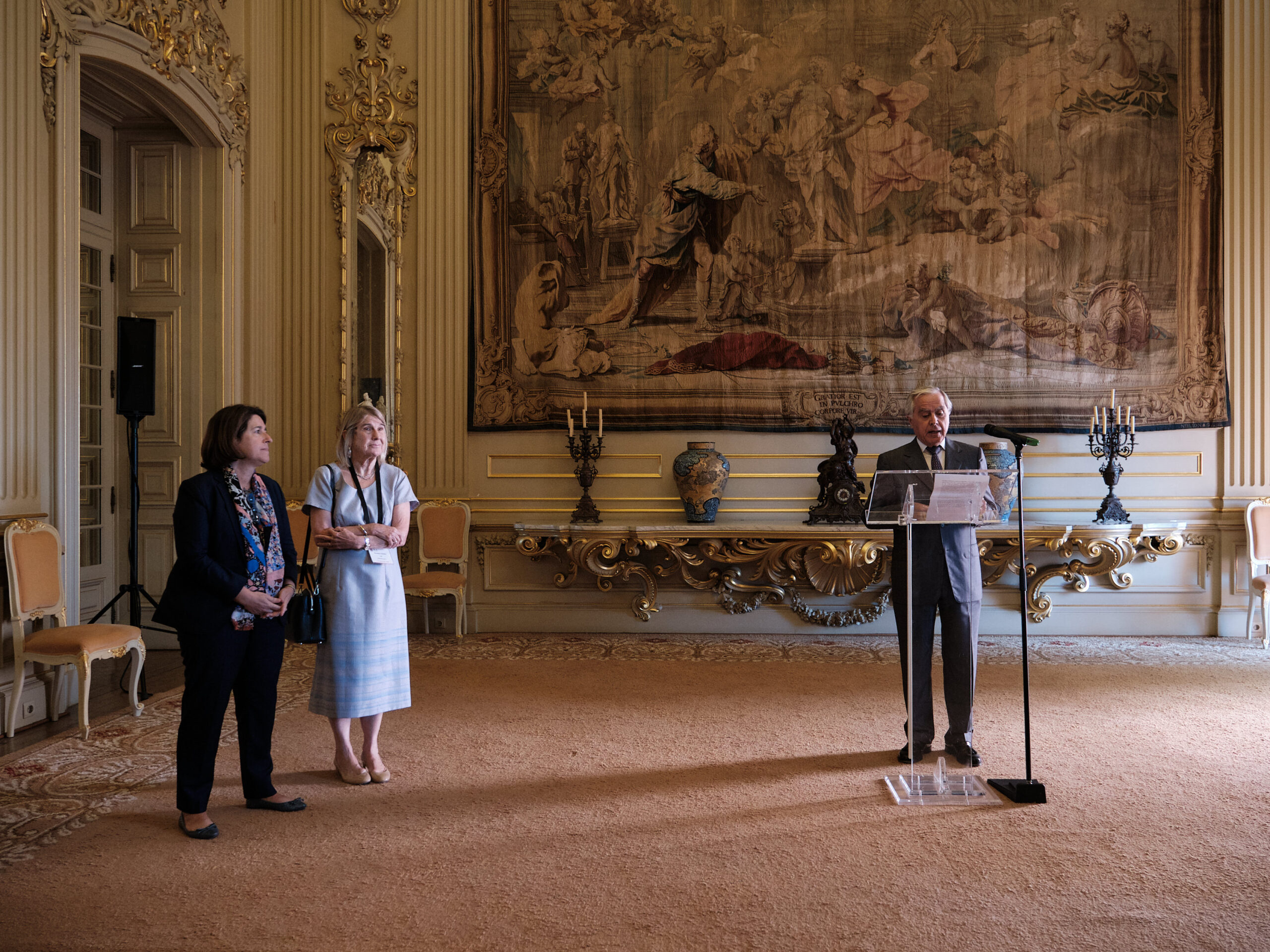
The theme of the 2022 Biennial was International Law: Our Common Good. The conference opened with a video message by UN Secretary-General António Guterres, while the closing ceremony featured an address by the U.N. Under-Secretary-General for Legal Affairs, Miguel de Serpa Soares. In the days between, the program included sessions of the ILA committees and study groups and a set of parallel panels where the main issues affecting the current status of international law were discussed. All reports and resolutions are available online. Despite the breadth of issues, all presentations shared the common thread of aspiring to make the world a better place.
As one of the main threats to future generations, climate change was a common issue discussed throughout the Conference. The impacts of climate change are undeniable, and cooperation among the international legal community is necessary. During the Conference, the ILA Committee on International Law & Sea-Level Rise presented its Interim Report on the effects of sea-level rise. The Committee, which includes ABILA members Maxine Burkeett, Elizabeth Burleson, Anita Halvorseen (alternate), Sean Murphy, and Captain J. Ashelly Roach, is working to promote legal frameworks for the new realities set by climate change, a daunting yet necessary task, and will ultimately draft a resolution to help avoid future conflict arising out of rising sea levels and to facilitate orderly relations between States. To address this task, the Committee looks at the intertwined issues as law of the sea, forced migration, human rights, and statehood. As sea levels rise, the baselines of coastal States will change and populations will be displaced. What obligation do surrounding States have to aid affected States and their displaced populations? Do States even have the responsibility to intervene? Some States, specifically island States, are at risk of losing their land altogether―will they lose their statehood? Should States secure additional territory or construct artificial territory? These are just some of the challenging questions that the Committee grapples with. By producing its resolution, the Committee aims to contribute to the underlying goals of international law to promote peace and avert conflict.
The Committee on Submarine Cables and Pipelines under International Law also submitted an Interim Report and Appendix (1 & 2). The Committee, chaired by Captain J. Ashely Roach and which also includes ABILA members Alice deJuvigny Colarossi, Omni Irish, and Colleen Sechrest, was established in 2018. The Committee acknowledged that the international legal regime governing submarine telecommunication and power cables and oil and gas pipelines may not address the myriad of challenges that States, and entities engaged in cable and pipeline activities, currently face in the development of policies relating to all aspects of the life cycles of submarine cables and pipelines, particularly given their extensive use. The Committee’s current mandate was extended a further four years.
 ABILA member Frederick Abbott, in his capacity as co-chair of the ILA Global Health Law Committee, chaired a panel on Global Health Law in a Deteriorating Environment. In response to tremendous challenges facing the world, including the pandemic, climate change, and the war in Europe and consequential disruption of food supplies, the panel examined the role of global health law in preparing for, addressing, and mitigating the consequences of the deterioration in the international environment. Professor Abbott also co-chaired a Committee session, which discussed the Committee’s 2022 Report.
ABILA member Frederick Abbott, in his capacity as co-chair of the ILA Global Health Law Committee, chaired a panel on Global Health Law in a Deteriorating Environment. In response to tremendous challenges facing the world, including the pandemic, climate change, and the war in Europe and consequential disruption of food supplies, the panel examined the role of global health law in preparing for, addressing, and mitigating the consequences of the deterioration in the international environment. Professor Abbott also co-chaired a Committee session, which discussed the Committee’s 2022 Report.
Another fascinating presentation dedicated to averting conflict pertained to the Peace Treaty Initiative, an ongoing initiative to develop an international law of peace negotiation. There is no normative framework to promote internal peace within international law. The Initiative is trying to change that by creating a sovereign-friendly legal space where conflicting parties can negotiate and avoid armed conflict. Much of international law is focused on armed conflict and its aftermath. However, dispelling armed conflicts before they even start would be the greatest win for human rights and international law.
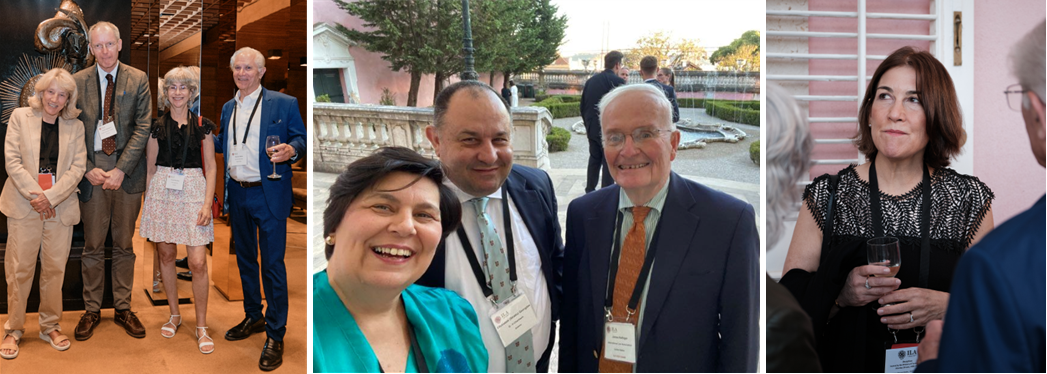
Aspirations to avoid and end conflicts highlight the idealism of international law. Practicing international law requires the sincere belief that we, as States and citizens of the world, want to come together to better the lives and environment around us. One such example of altruistic efforts to improve the world was shared during a presentation discussing the opportunities to support sustainable development and growth (“SDG”) through trade. Trade makes the world go round, and despite the slowdown caused by the pandemic, the global economy is making a comeback. But while recovery is a relief, increased international trade may exacerbate human rights and environmental problems that already exist. However, some international lawyers see an opportunity in trade agreements to help address SDG. As trade agreements are being renewed or newly drafted, parties can agree to incorporate new clauses that encourage SDG. If parties are successful in the domestic implementation of SDG clauses, trade agreements could promote, rather than frustrate, sustainability.
The International Securities Regulation Committee, which includes ABILA members Cynthia Lichtenstein and Edward Fleischman, noted that market and regulatory trends continue to be clustered around COVID-19, sustainable finance, and ESG issues, as well as financial technology, and the use and monitoring of technology in the financial industry. The COVID-19 pandemic remains virulent, albeit with some abatement and adjustment of responses – but still has a profound influence on markets and regulatory supervision and regulation. Separately, but in parallel, sustainable finance and ESG have grown in influence as a policy tool and investment drivers, and Fintech and RegTech are a topic of interest to regulators and the markets with new issues on the horizon. The Committee’s 2022 Report continued its review and analysis of these issues.
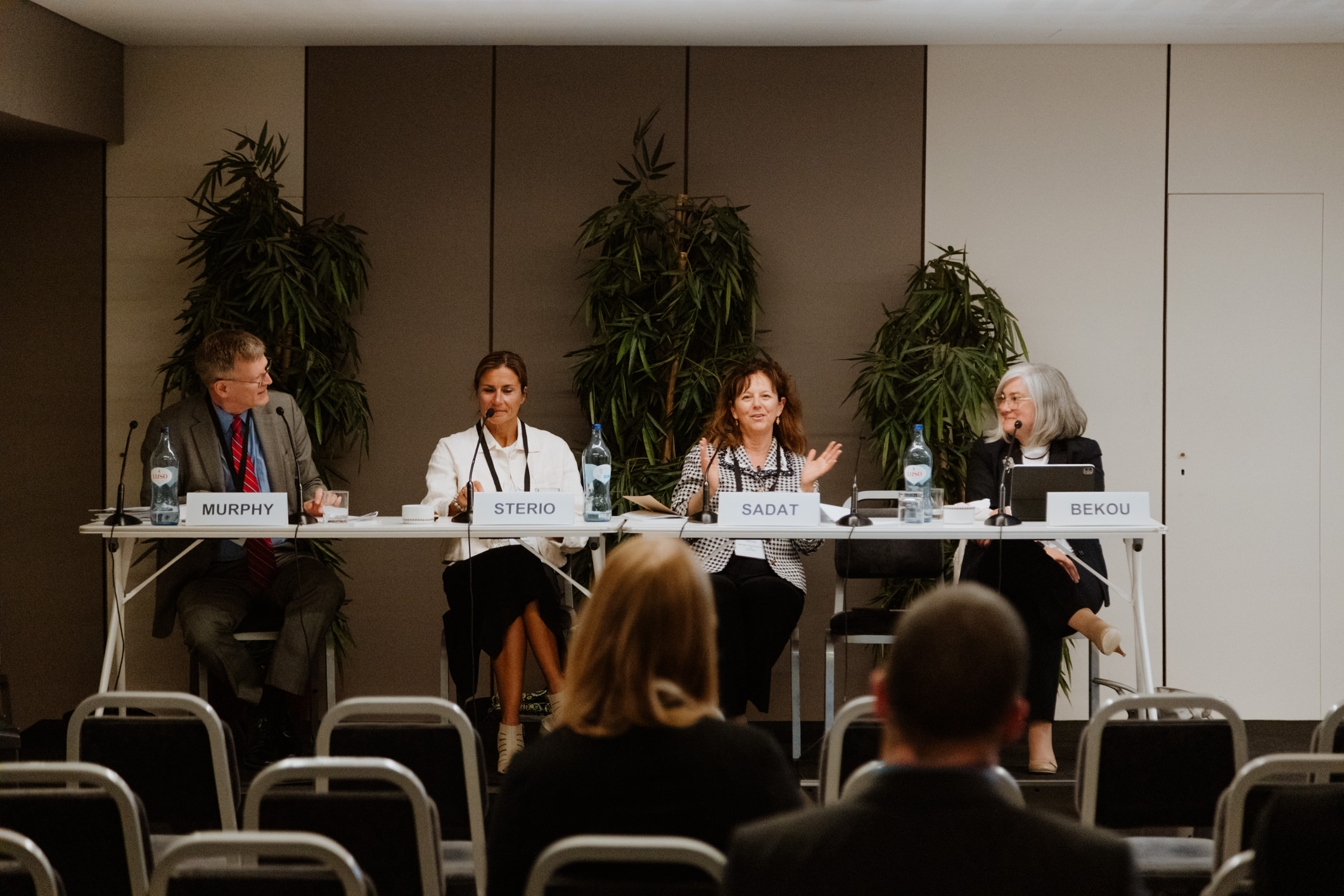
The ILA Committee on Complementarity in International Criminal Law, in which Leila Nadya Sadat has been an active member, presented its final Report at the Conference. “Mindful of the need to ensure that complementarity is not merely an ideal but also a practice,” the “Lisbon Conclusions and Recommendations on Complementarity” were adopted, and the Committee, having accomplished its mandate, was dissolved. In its final report, the Committee brought together its work on two questions of its mandate: (a) What are the obstacles to domestic investigations and prosecutions or alternative accountability processes for crimes within the jurisdiction of the International Criminal Court at the domestic level? and (b) (How) could a policy of so-called “positive complementarity” overcome any obstacles, and which actors are best placed to implement such policy?
Also at the Conference, the Committee on Protection of Privacy in Private International and Procedural Law’s Guidelines were adopted, and the Committee was dissolved. The Committee completed its mandate focused on the promotion of international co-operation and the contribution to predictability on issues of jurisdiction, applicable law, and circulation of judgments in privacy (including defamation) matters, taking into account, i.a., questions of fundamental rights. ABILA Board members David P. Stewart and Louis Ellen Teitz have been active in the Committee since its establishment.
Other resolutions at ILA Lisbon 2022 concerned the work of the Committees on Participation in Global Cultural Heritage Governance; Sustainable Development and the Green Economy in International Trade Law; Nuclear Weapons, Non Proliferation & Contemporary International Law; International Protection of Consumers; International Commercial Arbitration; and the Protection of Privacy in Private International and Procedural Law.

The daytime program of the Conference provided both educational and inspirational presentations, but attendees were also able to socialize and network outside of the program. One such cocktail reception was hosted by the American Branch, which invited members of both the American and Portuguese Branch. Kristin M. Kane, U.S. Deputy Chief of Mission of the United States Embassy & Consulate in Portugal, delivered remarks on U.S.-Portugal relations and the importance of international law. She also led a toast to the American Branch’s 100th anniversary.
Practicing international law requires idealism―the belief that the world can be better and that we can make it better. ILA 2022 strengthened that belief.

